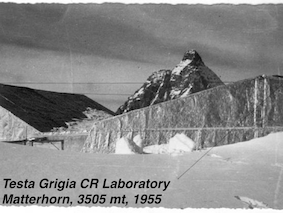Speaker
László Oláh
(Wigner Research Centre for Physics of the HAS)
Description
Cosmic ray detection is a research area which finds various applications in tomographic imaging of large size objects. In this case, the background sources which contaminate cosmic muon signal require a good understanding of the creation processes, as well as
reliable simulation frameworks with high predictive power. One of the main background source is the ``soft component'', that is electrons and positrons.
A simulation framework based on GEANT4 has been established to pin down the key features of the soft component. We have found that the electron and positron flux shows a remarkable invariance against various model parameters including the muon emission altitude or primary particle energy distribution. The correlation between simultaneously arriving particles have been quantitatively investigated, demonstrating that electrons and positrons tend to arrive close to each other and with low relative angle. This feature, which is highly relevant for counting detectors, has been experimentally verified. The simulation results has been compared to existing other measurements as well as other simulation
programs.
Author
László Oláh
(Wigner Research Centre for Physics of the HAS)
Co-author
Dr
Dezső Varga
(Wigner Research Centre for Physics of the HAS)

